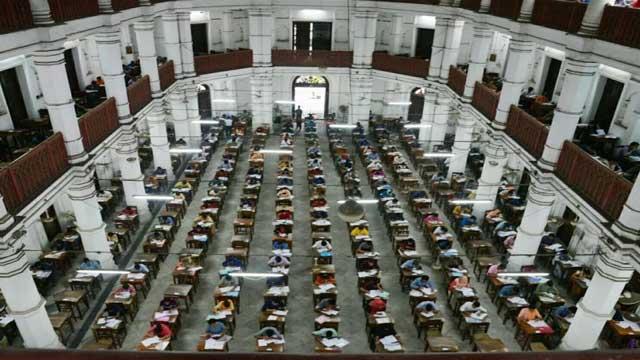At least 74 per cent of the country’s students who are seeking university admission are suffering from depression, according to a study conducted by Shahjalal University of Science and Technology.
Among them, 26 per cent of the students are suffering from mild depression, 26 per cent of moderate depression, and 22 per cent of the students are suffering from severe depression.
A team of researchers led by Jamal Uddin, Professor of statistics department of Shahjalal University of Science and Technology in Sylhet, conducted a survey titled Prevalence of Depression and its Associated Factors among Undergraduate Admission Candidates in Bangladesh: A Nation-wide Cross-sectional Study on about 5,000 university admission candidates of 2021-22 HSC session in the divisional cities of Bangladesh.
Through this survey, the researchers divided the severity of depression among the university admission seekers into three categories.
The study was published on November 30 in the international multidisciplinary Q1 journal PLOS One (Impact Factor: 3.7, 2022).
Regarding the study, Jamal Uddin said, ‘Factors have been identified behind both the increase and decrease of depression. Gender, blackmail, family problems, serious illness, Covid-19 diganosis, academic results, and psychological problems have been identified as factors behind the increase in depression.’
‘On the other hand, confidence in preparing for admission tests, exercise, study time, religious practice, play a role in reducing depression. Although family income and social media use have been identified as the catalyst for depression, their impact is not very strong in these cases. In addition, the study also revealed that there was no relation between the habit of smoking, marital status, love affairs and religious beliefs with the depression among the admission candidates.’
Another author of the study, Md Abu Bakar Siddique, said that female students were almost twice as likely to suffer from moderate depression as boys.
The correlation between recent experiences of blackmail and familial issues in students often leads to a significantly higher likelihood of experiencing severe depression, often two to three times more than their peers.
He emphasised that genuine companionship and a supportive family environment are irreplaceable when it comes to alleviating depression among students.
‘Simultaneously, fostering awareness about physical fitness and religious discipline proves influential. It's crucial to prioritise not just the students’ physical health but also their mental well-being. Beyond academic success, a collaborative effort from families, educational institutions, society, and the government is imperative to nurture a resilient generation, both physically and mentally,’ said Abu Bakar.
Md Nafiul Hasan and Al Mahmud of department of statistics at SUST, Munmun Sarker, a student of the department of microbiology of Dhaka University, Mahmudul Hasan Milad, a student of the department of public health of the University of Birmingham, UK, Akher Ali, a student of the department of statistics, Jahangirnagar University, and Jubayer Ahmed, assistant professor of the department of economics and banking, Islamic University, Chattogram also contributed to the research.





